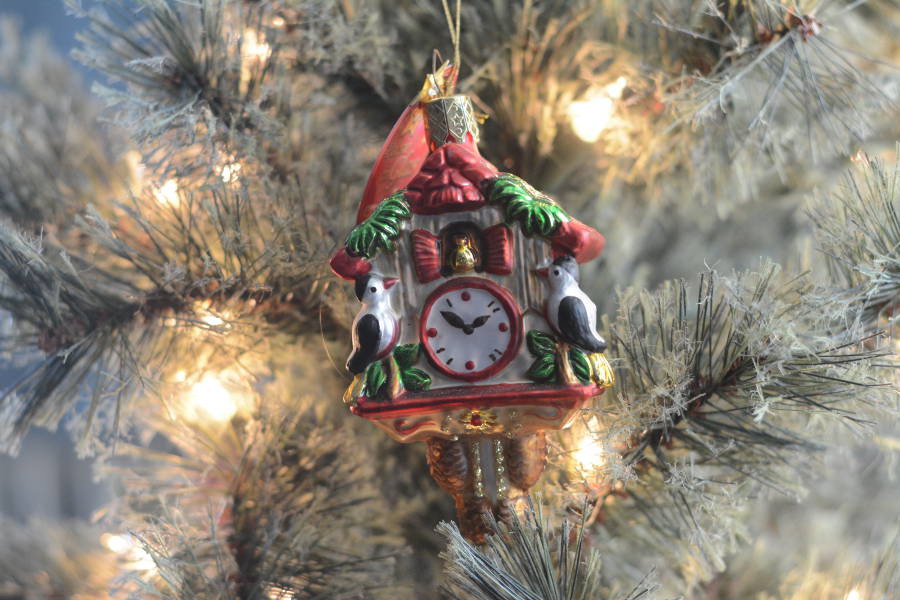Looking for some festive music for your holiday party? Or just some tunes to listen to while you wrap gifts? Perhaps you just want to put on some music and get into the Christmas spirit? The reason doesn’t matter. But now isn’t the time to slack off with your German language practice.
May your days be merry and bright with these traditional German Christmas songs! Learn the carols and make new traditions and memories that will last a lifetime! Here are ten of the most popular and beloved German Christmas songs.
Want to fully embrace the holiday season? Check out my guide for German Christmas decorations and German gift guide to help you celebrate at home.
O Tannenbaum
If “O Tannenbaum” sounds familiar, you would be right! You may recognize the song as “O Christmas Tree” in English. The song is original to Germany. Ernst Anschütz wrote lyrics for the traditional melody in 1824. The original German lyrics do not include any references to Christmas. The English version translates Tannenbaum to “Christmas tree” although it really means “evergreen tree.”
Stille Nacht, Heilige Nacht
Today, most people may associate “Silent Night” with Bing Crosby’s version of the song. However, the song originated in Austria in 1818. It was then that Franz Xaver Gruber put music to Joseph Mohr’s text. It wasn’t until 1859 that it was translated into English by John Freeman Young, an Episcopal priest in New York City. The song is integral to Austria. So integral, in fact, that it has been declared by UNESCO as an Austrian intangible cultural heritage in 2011.
O du fröhliche
One of the most well-known German Christmas songs, “O du fröhliche” means “O how joyful.” The song’s melody is from the hymn “O Sanctissima.” The lyrics are by Weimar’s Johannes Daniel Falk. Falk founded a children’s orphanage. The lyrics of the song are dedicated to the children he rescued. After his death, his assistant Heinrich Holzschuher was responsible for completing the lyrics as well as additional verses.
Alle Jahre wieder
“Every Year Again,” or “Alle Jahre wieder,” was written in 1837. Friedrich Silcher put text by Johann Wilhelm Hey to music.
Kling Glöckchen klingelingeling
“Kling Glöckchen klingelingeling” is from the 19th century using a traditional melody. You can translate the title as “Ring bells ringalingaling.” Karl Enslin is the author of the lyrics.
Leise rieselt der Schnee
“Leise rieselt der Schnee,” or “Softly falls every snowflake,” is the work of Pastor Eduard Ebel. He wrote it in 1895. It was originally published under the title “Weihnachtsgruß,” or “Christmas greetings.” The melody is attributed to Ebel. However, in reality, it is unknown if he is responsible for the music.
Lasst uns froh und munter sein
In English, “Lasst uns froh und munter sein” is “Let us be happy and cheerful.” The carolers traditionally sing the song on December 5th (Nicholas Eve or Nikolausabend). It celebrates the feast of Saint Nicholas of Myra the following day.
Fröhliche Weihnacht überall
It is interesting to note that the roots of “Fröhliche Weihnacht überall” are actually English! But it is ironic, however, that the original English text was lost. August Heinrich Hoffmann von Fallersleben is responsible for the German lyrics that we sing today.
Ihr Kinderlein, kommet
You can translate “Ihr Kinderlein, kommet” as “Oh, come, little children.” This German Christmas song uses lyrics from 1798 as a basis. The text comes from a poem by Christoph von Schmid, a Catholic priest. Notably, the poem has been set to music more than once. J. A. P. Schulz first put it to music in 1794. Finally, in 1837, Franz Xaver Luft put von Schmid’s poem to music. It is Schulz’s melody, however, that we are familiar with today.
Süßer die Glocken nie klingen
“The bells never sounded sweeter” is a 19th century German Christmas song. The lyrics are by Friedrich Wilhelm Kritzinger. The melody is from a Thuringian folk song.
What are your favorite traditional German Christmas songs? (Or even the not-so-traditional songs!) Share in the comments below!

Many years ago a friend and I wrote English words to many German Christmas Carols. The English words were written so that they rhyme and also can be sung. In fact a colleague recorded them in English.
I had some on my webpage but could not continue this webpage. I am willing to share these, if you are interested.